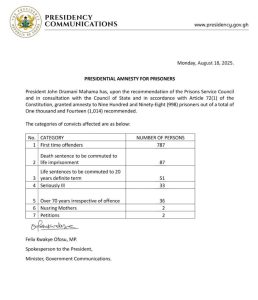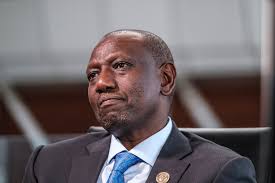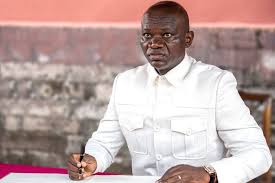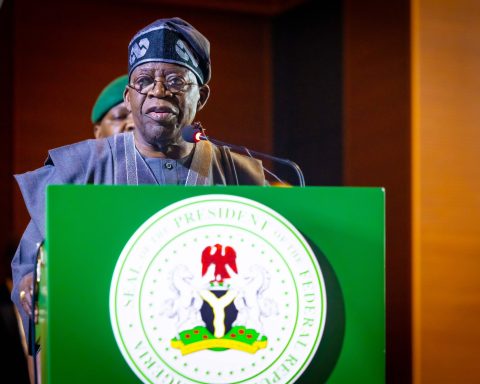President John Mahama has granted amnesty to 998 prisoners across Ghana, exercising his constitutional powers under Article 72(1) of the 1992 Constitution.
The Presidency, in a statement signed by spokesperson Felix Kwakye Ofosu on Monday, said the decision followed recommendations from the Prisons Service Council and consultations with the Council of State. Out of 1,014 inmates recommended, 998 were approved for release or commutation.
Join our WhatsApp ChannelAccording to the breakdown, 787 first-time offenders benefited, alongside 87 inmates whose death sentences were commuted to life imprisonment and 51 prisoners whose life sentences were reduced to 20 years. The amnesty also covered 33 inmates released on health grounds, 36 prisoners over the age of 70, two nursing mothers, and two others pardoned on petition.
The Presidency explained that the move reflects a balance of justice and compassion, particularly for vulnerable groups such as the elderly, the seriously ill, and nursing mothers. Ghana’s prisons have long struggled with overcrowding and poor facilities.
According to the Ghana Prisons Service, most correctional centres operate at more than double their official capacity, leading to serious human rights concerns. Civil society groups and rights advocates have consistently urged government interventions, including reforms and amnesties, to ease the strain.
This is not the first time a Ghanaian president has granted mass amnesty. Successive governments have used the constitutional provision to reduce congestion in correctional facilities, often coinciding with national holidays or special occasions.
READ ALSO:
- Naira Stability: Analysts Project Nigeria’s FX Reserves To Hit $41bn By Year End
- NBA Condemns Assault on Anambra Corps Member, Demands Prosecution of Culprits
Amnesty International Ghana welcomed the development, describing it as an act that “reduces prison congestion, upholds human dignity, and offers a second chance for reintegration into society.” The rights group, in a post via its official X handle, commended President Mahama for the gesture and urged the government to pair such initiatives with long-term prison reforms.
Other human rights organisations have also praised the decision as a step toward a more rehabilitative justice system. Legal analysts noted that the commutation of death sentences reflects Ghana’s gradual departure from capital punishment, even though it remains on the statute books.
The presidential amnesty is more than a humanitarian gesture. It highlights Ghana’s commitment to upholding human dignity, easing prison congestion, and aligning with global human rights standards.
By shifting focus from retribution to rehabilitation, Ghana is sending a signal that its justice system is evolving toward fairness and reintegration an important marker for the country’s democratic and human rights credentials on the international stage.
Amanze Chinonye is a Staff Correspondent at Prime Business Africa, a rising star in the literary world, weaving captivating stories that transport readers to the vibrant landscapes of Nigeria and the rest of Africa. With a unique voice that blends with the newspaper's tradition and style, Chinonye's writing is a masterful exploration of the human condition, delving into themes of identity, culture, and social justice. Through her words, Chinonye paints vivid portraits of everyday African life, from the bustling markets of Nigeria's Lagos to the quiet villages of South Africa's countryside . With a keen eye for detail and a deep understanding of the complexities of Nigerian society, Chinonye's writing is both a testament to the country's rich cultural heritage and a powerful call to action for a brighter future. As a writer, Chinonye is a true storyteller, using her dexterity to educate, inspire, and uplift readers around the world.
- Amanze Chinonye
- Amanze Chinonye
- Amanze Chinonye
- Amanze Chinonye
- Amanze Chinonye
- Amanze Chinonye
- Amanze Chinonye
- Amanze Chinonye
- Amanze Chinonye
- Amanze Chinonye
- Amanze Chinonye
- Amanze Chinonye
- Amanze Chinonye
- Amanze Chinonye
- Amanze Chinonye
- Amanze Chinonye
- Amanze Chinonye
- Amanze Chinonye
- Amanze Chinonye
- Amanze Chinonye
- Amanze Chinonye
- Amanze Chinonye
- Amanze Chinonye
- Amanze Chinonye
- Amanze Chinonye
- Amanze Chinonye
- Amanze Chinonye
- Amanze Chinonye
- Amanze Chinonye
- Amanze Chinonye
- Amanze Chinonye
- Amanze Chinonye
- Amanze Chinonye
- Amanze Chinonye
- Amanze Chinonye
- Amanze Chinonye
- Amanze Chinonye
- Amanze Chinonye
- Amanze Chinonye
- Amanze Chinonye
- Amanze Chinonye
- Amanze Chinonye
- Amanze Chinonye
- Amanze Chinonye
- Amanze Chinonye
- Amanze Chinonye
- Amanze Chinonye
- Amanze Chinonye
- Amanze Chinonye
- Amanze Chinonye
- Amanze Chinonye
- Amanze Chinonye
- Amanze Chinonye
- Amanze Chinonye
- Amanze Chinonye
- Amanze Chinonye
- Amanze Chinonye
- Amanze Chinonye
- Amanze Chinonye
- Amanze Chinonye
- Amanze Chinonye
- Amanze Chinonye
- Amanze Chinonye
- Amanze Chinonye
- Amanze Chinonye
- Amanze Chinonye
- Amanze Chinonye
- Amanze Chinonye
- Amanze Chinonye
- Amanze Chinonye
- Amanze Chinonye
- Amanze Chinonye
- Amanze Chinonye
- Amanze Chinonye
- Amanze Chinonye
- Amanze Chinonye
- Amanze Chinonye
- Amanze Chinonye
- Amanze Chinonye
- Amanze Chinonye
- Amanze Chinonye
- Amanze Chinonye
- Amanze Chinonye
- Amanze Chinonye
- Amanze Chinonye
- Amanze Chinonye
- Amanze Chinonye
- Amanze Chinonye
- Amanze Chinonye
- Amanze Chinonye
- Amanze Chinonye
- Amanze Chinonye
- Amanze Chinonye
- Amanze Chinonye
- Amanze Chinonye
- Amanze Chinonye
- Amanze Chinonye
- Amanze Chinonye
- Amanze Chinonye
- Amanze Chinonye
- Amanze Chinonye
- Amanze Chinonye
- Amanze Chinonye
- Amanze Chinonye
- Amanze Chinonye
- Amanze Chinonye
- Amanze Chinonye
- Amanze Chinonye
- Amanze Chinonye
- Amanze Chinonye
- Amanze Chinonye
- Amanze Chinonye
- Amanze Chinonye
- Amanze Chinonye
- Amanze Chinonye
- Amanze Chinonye
- Amanze Chinonye
- Amanze Chinonye
- Amanze Chinonye
- Amanze Chinonye
- Amanze Chinonye
- Amanze Chinonye
- Amanze Chinonye
- Amanze Chinonye
- Amanze Chinonye
- Amanze Chinonye
- Amanze Chinonye
- Amanze Chinonye
- Amanze Chinonye
- Amanze Chinonye











